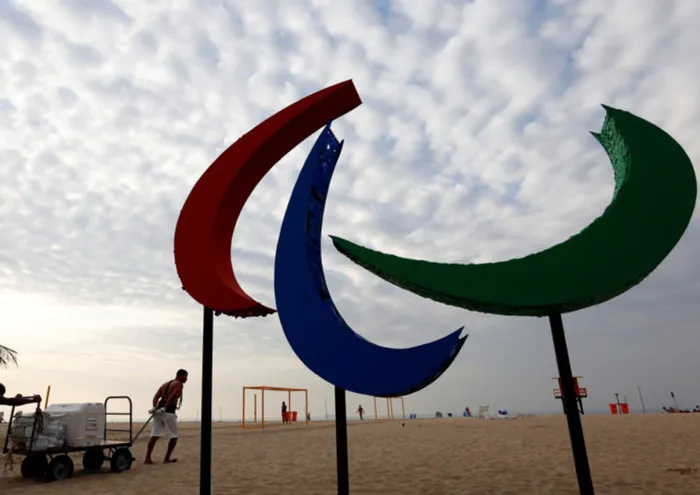Paralympic Games have the ability to inspire

Rio announced the Paralympics open at the Maracan� Stadium with laughter, and tears of joy and celebration. Rio announced the Paralympics open at the Maracan� Stadium with laughter, and tears of joy and celebration.
Rio de Janeiro – Rio announced the Paralympics at the Maracanã Stadium with laughter, and tears of joy and celebration last night with an opening ceremony described by its creative director as one that was “politicised”, “cheeky” and designed to make you “cry tears of emotion at some points”.
It was, perhaps, a quintessential Paralympic opening ceremony, one to celebrate the glory of the athlete but to remind that these Games have a greater purpose. It was a theme park ride rather and stuck-up history lesson.
“Inclusion” and changing perception was the theme of the opening speech by Sir Phillip Craven, the president of the International Paralympic Committee (IPC), last night.
There was samba, there was an artwork created by Brazilian artist Vik Muniz with the help of the athletes, there were Brazilian celebrities such as stylist Ronaldo Fraga, artist Guto Lacaz, musicians Teresa Cristina, Diogo Nogueira, Moncarco, Xande de Pilares, Hamilton Holanda and Pretinho da Serrinha.
Never heard of them? Well, very few of the athletes or media knew who they were either, but they were Brazilian and so the stadium danced.
“You will witness how Paralympic sport has the ability to inspire an individual, and the outstanding capacity to transform communities, countries and continents,” said Craven, addressing the people of Rio.
“In a country which has faced major challenges of late, Paralympians will switch your focus from perceived limitations, to a world full of possibility and endless opportunity. They will surprise you, inspire and excite you, but most of all they will change you.”
And there were the athletes, South Africa the third county out because of the Portuguese translation of their name - A´frica do Sul.
They were led by Zanele Situ, the first black woman to win a gold medal when won the javelin in Sydney in 2000. She has had an up and down career since, but has spoken of her determination to put things right and claim her crown again.
Today, Kevin Paul will be the first star up for South Africa in the 100m breaststroke. Paul, born without a pectoral muscle, has gold and silver from two Paralympic Games. He is just 25, having made his debut at Beijing in 2008. Craven was speaking to Situ, Paul and all the other athletes when he called upon them to do their bit in Rio.
“With the eyes of the world upon you, I ask you to send a message to the world through sport. Through your performances tell your story, a narrative of inclusion, a tale of empowerment and a legend that hope will always conquer fear,” said Craven.
“Show the world that there is no them, there is only us; a world where people of all abilities, races, nationalities and sexualities can come together as one. We are all part of one world.
Welcome to the 161 participating National Paralympic Committees and most of all show your support to the first ever Independent Paralympic Athletes team featuring two refugee athletes. At a Games full of inspiring stories, yours may well be the most inspiring of all.
“The Rio 2016 Paralympic Games will bring a new perspective to everyone in this country by showing that the human spirit knows no limits. Over the next 12 days, through the performances of Paralympians, you will see the true meaning of sport and the true definition of ability.”
Craven thanked the city of Rio and the organisers before ending his speech. It would have come through gritted teeth.
Save for the Russians, all of the 165 countries have arrived in Brazil after the travel grants were finally paid. There have been cuts to venues, transport, services and staff. Ticket sales have been slow. London went nuts for the Paralympics in 2012.
Rio has yet to feel and build the fever. Last night’s opening ceremony may have gone part of the way to helping that, hoped the creative director Marcelo Paiva.
“We politicised our ceremony, intentionally,” said Pavia, a writer who played sport before he became disabled. “It started with some humour to show that people with an impairment also laugh, also get themselves into funny situations, to shatter this stereotype of the sad little person. And to show solidarity, that we help ourselves, that people help us, out of good will. We awake the good inside of people.”
Independent Media